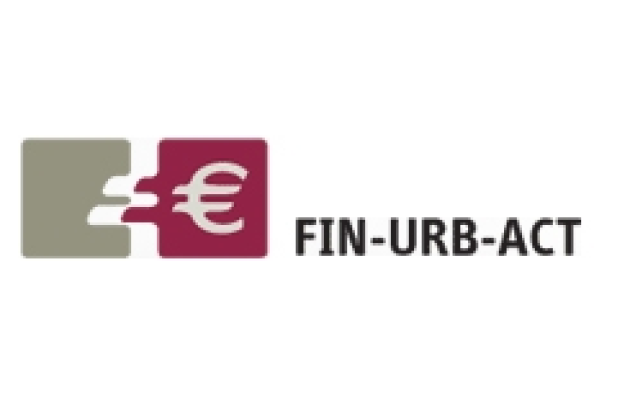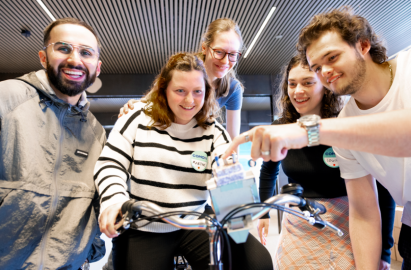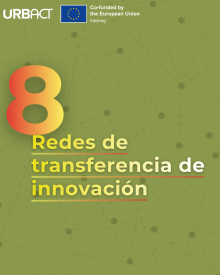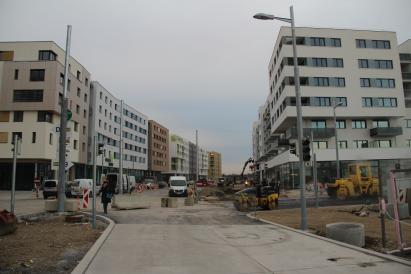21/04/2008 19/07/2011
FIN-URB-ACT strives for more efficient local support structures for SMEs' development and innovative economies. The rationale is that such structures on local level - where financial instruments meet nonfinancial assistance - are basic prerequisites for fostering start-ups and business growth.

Summary
Introduction
Thus, FIN-URB-ACT aim was to create and/or improve local support structures, which should involve all local and regional key actors for SME and innovative economy support.
Furthermore, based on an integrated local action plan developed by the local partnership, FIN-URB-ACT had a strong focus on developing and implementing tailormade financial and non-financial support products like micro-credit and other funding schemes, incubators, business networks etc.
The main objective of FIN-URB-ACT was to strengthen the performance of the urban economy and to foster employment by providing adequate support structures for innovative, competitive and qualified entrepreneurship. One important aspect was to improve SMEs’ and innovative economy’s access to finance to start up and prosper. Thus, sustainable growth and the creation of jobs are eased and at the same time an attractive urban development is promoted.
FIN-URB-ACT will interlink the integrated urban development approach, promoted by both the EU-Commission and the Leipzig Charter, and the renewed Lisbon strategy for growth and jobs adopted on 11th of December 2007, which substantially increases the need to fully unlock the growth and jobs potential of SMEs and make full use of their innovative capacities. Thus, FIN-URB-ACT adds value to EU policies by interlinking the urban dimension of EU Cohesion Policy with EU SME Policy promoting innovative financial tools like micro-credits and revolving funds.
The main issue of the project was to create and further develop effective local support structures by strong local business promotion partnerships between all relevant public and private actors. The support structures contain attractive financial and innovative non-financial instruments - both on local and regional/national level which are combined in a coherent and comprehensive support package. The overall conviction of FIN-URB-ACT is that it is not enough to create individual support tools. There is a strong need to combine offers and to orchestrate the single actors in a way that synergy effects can be used and tasks can be streamlined and at the same time various groups of entrepreneurs with different needs and expectations can be reached. Due to the importance of financial support (e.g. by specific micro credit offers or risk capital) the involvement of local financial institutions will be crucial as well as the access to SME support schemes on regional/national level. This vertically and horizontally linked, overall support structure will form a fundamental basis for promoting local entrepreneurship.
Based on URBACT I results (e.g. ECO-FIN-NET, CCWG “local economic development”) FIN-URB-ACT will assist cities in developing and applying local economic support strategies and innovative instruments for SME development. Being an implementation oriented project, focus will be laid on a practice oriented transfer of gained knowledge to the local level and on its application within Local Action Plans (LAP). On the local level the partners will set up or improve their partnership within the Local Support Group (LSG) – consisting of key actors for SME support such as city departments, banks, universities, chambers, business representatives etc. Within this LSG an overall local economic development strategy (LAP) will be elaborated and new financial and non-financial instruments, like micro credits, risk capital, incubators etc. will be tested and applied in practice. The LAP will include knowledge, good practices and conclusions achieved within the European partnership.
Outputs are not limited to the participating partners and include overall capitalisation and information material for all interested bodies. These can be amongst others a good practice compilation, a guidebook, thematic studies and policy recommendations for the local as well as the regional and European level.
PARTNERS
Lead Partner : German Association For Housing, Urban And Spatial Development - Germany- Edinburgh - United Kingdom
- Gijon - Spain
- Aveiro - Portugal
- Rome - Italy
- Maribor - Slovenia
- Galati - Romania
- Gliwice - Poland
- Linz - Austria
- Reims - France
- Leipzig - Germany
- Berlin - Germany
Timeline
Project launch
Project completed








